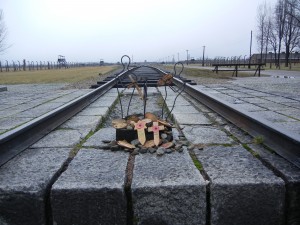I did not like this story. I mean, I have not enjoyed some of the readings in Arts One, but I still had a hearty respect for them. Mainly I just had a problem with the rhetoric, or these were simply works I would not always read. For Foe though, I vindictively hate this story (though not the discussions that it brings up). So much, that I honestly consider it to be a little more than glorified fanfiction. It certainly begs me to question on how did this story gain the Nobel Prize for Literature, for while the discussions and the points it eventually brings up are interesting, the character of Susan Barton just makes me want to scream.
To be up front, I set some higher expectations when I went into this story. I expected this alternate version of Robinson Crusoe to be quite interesting. Mayhap a discussion on the role of women. What I read, is about a quarter of the story in which Barton basically throws herself into Crusoe’s arms. Crusoe, painted as this flat, ornamental, deranged man who can’t seem to care for himself. His backstory on how he came to the island is interesting and I liked the references to the original Robinson Crusoe. However, I was mortified to see the original character reduced and twisted literally a shadow. I much rather preferred the original. The entire island sequence, was so boring, why is Barton even bothering to ask Foe to write this story? Friday, is far more interesting, but this does not compensate for my dislike of how in my opinion, how the author twisted DeFoe’s text. I mean yes, the plot is that Foe relentlessly distorted Barton’s tale and I find it rather disgusting that the author’s character takes advantage of Barton like this. However, there are events within this story that do not make sense, that I see no purpose in being there. The entire tale on how Barton details her travels with Friday, was useful in showing how alienated she was, but that went on for a quarter of the story! Then after this extraordinarily interesting discussion with Foe about literature, one of the few parts in fact of this book which i found worth reading, Barton, is so disillusioned she mistakes a stranger for her daughter, and then throws herself into Foe’s bed… . … What? Just. what? The story does get a little interesting when they start discussing stories and literature again, but events like those simply make me go what the hell just happened.
Now why do I hate Barton. For a multitude of reasons, she’s weak-willed, delusional, her perception of reality non-existent, proven by the fact she thinks this girl Foe hired is her daughter. She’s so distorted, so… lame. That’s the word, lame. for a person who wants to record her and Crusoe’s experience, she does a horrendous job of it. She has some interesting things to discuss with Foe, but that’s it.
Is there anything I enjoy about this story? A few. Friday in particular. His character was quite wonderfully developed and I loved reading about the discussion between Barton and Foe about him being a slave or a cannibal. He was the highlight of this story for me, while Barton was useless, Foe was an ass, Crusoe an ornament, I found Friday quite refreshing and the discussion that revolved around him brought out the more interesting parts of the story. The imagery was good and the use of repetition was neatly done. In fact, the general discussions between Barton and Foe were the parts of the story I most enjoyed. They brought up some interesting issues in the telling of literature and of stories.
Still, I consider Barton’s character lame and thus, the story in general to be basically glorified fanfiction with some interesting arguments about literature. For some reason, I’m not sure why, but my hate stems from my view that the author twisted DeFoe’s text, in a way I dislike and took it in a direction that I disliked. I consider, that Defoe’s text is the original, the author built her story from it. If the circumstances were different, my opinion would be different, and that is interesting, because the originality does affect how I see these works. Moreovoer, I read Robinson Crusoe a long time ago before Arts One, and I liked it, as boring/repetitive some parts were, I found it a good story. Of course the story is that Foe distorted Barton’s tale… but the original fragment that Barton had… was so… pointless, that I think that if the events of this story were true… I’d prefer reading Defoe’s version.
P.S… Jon, if you chose this text by any chance. FORGIVE ME!!! I just really could not sympathize with Barton.

